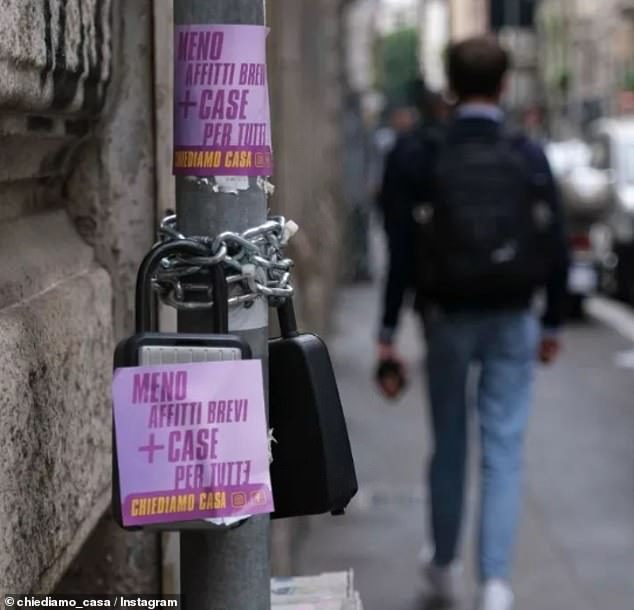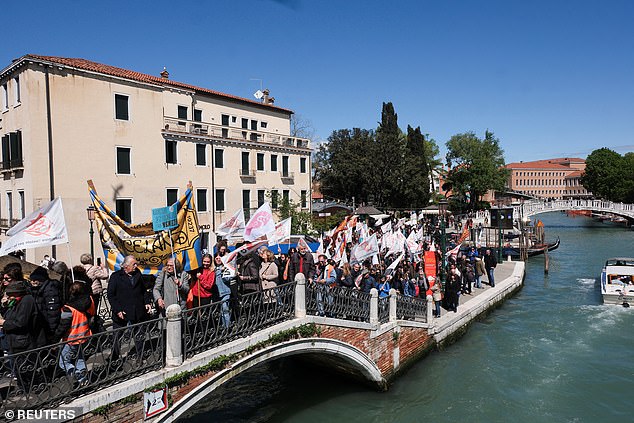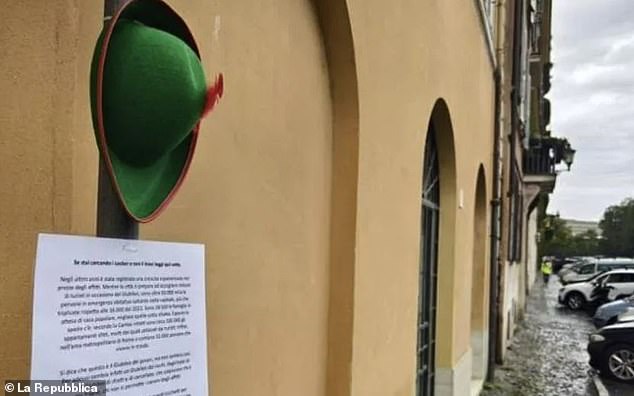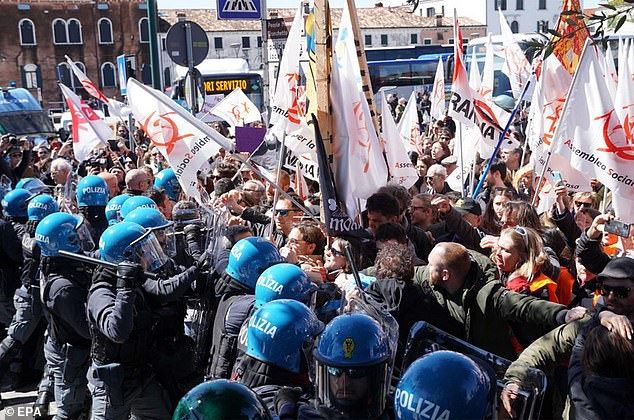Italy will ban Airbnb metal key boxes in the country’s latest move to combat overtourism.
Authorities ruled Tuesday that tourists must now meet in person with the property owner to verify their identity.
The ban, which will come into force next year, was introduced for “national security reasons.”
Vittorio Pisani, national police chief, said the crackdown will help authorities control “dangerous people” or those “linked to terrorist organizations.”
Italian authorities are concerned that terrorists have begun renting properties online using forged documents that are not being checked.
“The need has arisen to implement strict measures aimed at preventing threats to public order and security related to the possible hosting of dangerous persons involved in criminal or terrorist organizations,” Pisani said.
The ban is also understood to be a direct response to the rise in the number of short-term rentals, such as Airbnb, across Italy.
Metal key boxes have become a symbol of overtourism in Venice, Florence, Rome, Naples and other cities.
Italy to ban Airbnb metal key boxes nationwide in latest move to crack down on overtourism (file photo)

Residents of Milan and Florence are protesting Airbnb by placing stickers on the key boxes that allow tourists to access their rented accommodations.

People protest against the introduction of registration and tourist tax to visit the city of Venice for day trippers on April 25
They are often attached to gates, railings and posts and allow guests to access the property after receiving a code sent by SMS or email.
The ban was welcomed by Roberto Gualtieri, mayor of Rome, who said metal key boxes “ruin our streets.”
However, critics have argued that the measure is “discriminatory” and would harm local businesses.
The move comes after a series of popular revolts against Airbnbs and short-term rentals in Italy this year.
Last month, activists in Milan smashed metal key boxes across the city with their slogan “fewer short term rentals, more houses for everyone.”
“Let’s limit tourist rentals, let’s protest against those who want to drive us out of the city with unsustainable rentals of inaccessible houses,” activists wrote in a call to action in early November.
“We want a city for everyone and the right to live in decent housing,” their statement said.
And in Florence, where almost a third of the city’s apartments are listed on Airbnb, protesters used stickers with the slogan “Save Florence so we can live in it.”
Meanwhile, in Rome, activists calling themselves Robin Hoods removed several safes from properties in Rome, denying travelers access to their vacation rentals.
Letters were posted under felt Robin Hood hats on the city’s lampposts, describing the vandalism as “the first” attack on “the rich.”
‘If you are looking for key safes and can’t find them, read this. We are rebelling,’ reads a note shared by local media.
“We have removed these key storage boxes to denounce the sale of the city to short-term holidays that alienate locals and leave residents high and dry.”
There has been a fierce backlash against tourists in Mediterranean hotspots this summer, with locals denouncing what they see as lax regulation on tourist accommodation that has made it difficult to find affordable housing.

Robin Hood hats were placed on Rome lampposts with a letter lamenting tourism

Members of social centers confront police officers during a demonstration in Piazzale Roma against the introduction of a city entrance fee for day-trippers, in Venice, April 25.
The rise of rental companies such as Airbnb has caused some owners to stop renting to residents and instead rent rooms or apartments to short-term visitors.
This has reduced the overall supply of housing, raising the cost of rent.
Campaigners said rents had risen “exponentially” in recent years. “This is only our first action against the Holy Year of the rich,” his letters said.
More than 35 million tourists visited Rome last year, making it a record year and an all-time high in attendance.
The previous year, as Rome recovered from the pandemic, some 15 million arrived, and 30 million overnight stays increased by 176 percent compared to 2021.
Next year, Rome and Vatican City will also host their ‘Holy Year’ jubilee, which is expected to attract some 30 million visitors from around the world and put additional pressure on locals.
But some residents worry that keeping tourists away will affect their livelihoods or tarnish their city’s reputation.
Protesters clashed with police in Venice in April over a new imposition of a “tourist tax,” which requires short-stay visitors to pay a 5-euro “entry fee.”
Protesters armed with signs and banners lined the historic canals of the Italian city to show their contempt, and were met by baton-wielding riot police.
Critics argue that the 5 euro (£4.30) fee, initially in place during the summer, is unlikely to significantly affect the around 30 million trips made to Venice each year.
In a surprising statement, former mayor Massimo Cacciari went so far as to suggest that tourists should flatly refuse to pay the “absurd” entrance fee, arguing that they already “pay for everything.”
An Airbnb spokesperson said: “At Airbnb we take safety very seriously and recognize the importance of complying with local regulations and ensuring the safety of all parties involved.”
‘That’s why we support cities in their efforts to boost in-person hospitality, cracking down on illegal key boxes in public spaces through educational campaigns and encouraging our community to prioritize welcoming guests in-person .
‘Self check-ins provide a convenient option for both hosts and guests to manage arrivals flexibly and accommodate occasional unexpected changes to travel plans. They are used around the world and, combined with our guest identity verification, have also provided high security standards.
“While we remain committed to promoting responsible hosting and ensuring our platform continues to offer safe and enjoyable experiences for all, we look forward to working with the Italian government on solutions that help address local safety concerns while also meeting the needs of our hosts and guests.’


